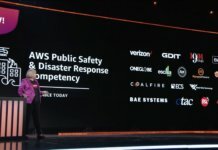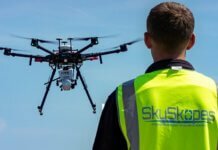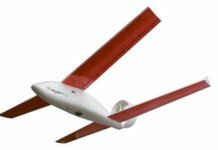Attention, commercial drone operators: The Federal Aviation Administration (FAA) recently made some Section 333 policy changes that may have slipped under the radar for many.
According to a Nov. 14 document posted in the Federal Register, the agency revoked closed-set drone operations – i.e., those taking place over people – for those who had previously been approved for this type of flight under Section 333 (the process by which the FAA granted commercial drone exemptions before Part 107 went into effect last August).
As explained by Hogan Lovells’ Gretchen West, co-founder of the Commercial Drone Alliance, this blanket amendment could apply to as many as 500 entities – and they might not even be aware of it.
“Technically, they’re operating without authority right now,” she tells UAO. “And they probably don’t even know that because they weren’t directly given a notification from the FAA.”
No, the agency did not let these operators know about the change; instead, they simply posted the announcement to the Federal Register. (West notes that a handful of entities had previously received a renewal on their closed-set operations; therefore, the change does not apply to them.)
In addition, under a change made in the same blanket amendment, the FAA has announced that all Section 333 operators are now allowed to deploy any drone under the agency’s long list of approved unmanned aircraft systems.
Last year, the FAA began granting new commercial exemptions covering all the drones approved on its list – i.e., these operators would not be restricted to only the types of UAS it had originally petitioned the FAA to use under Section 333. However, this change was not retroactive to all commercial exemption holders until this latest Federal Register notice.
Thus, West warns that it’s essential these amendments are widely known – not just for closed-set operators but also for the thousands of other entities that had been approved as commercial operators.
It’s not necessarily doomsday for closed-set operations, though. According to West, if this blanket amendment does apply to you, contact the FAA, and ask for a renewal of your approval.
The FAA is not likely to reverse the amendment as a whole, she says, but there’s a “good chance” the agency might do it on an individual basis if you’re able to prove that you have, indeed, been flying safely over people.
Reiterating the importance of being aware of this new blanket amendment, West adds, “We don’t want to jeopardize anything with the industry. We want everyone to fly safely.”
After all, look at what happened earlier this week with Chicago-based aerial photography company SkyPan International: The company and the FAA finally settled a $1.9 million civil penalty case over what the agency deemed “unauthorized” drone operations in congested airspace a couple years ago. In the end, SkyPan had to cough up a $200,000 fine.
West brings up another point: What if this amendment marks the start of similar ones? For example, could the FAA also revoke authorization for Part 107 waivers without any given reason and without an official notice?
“We need to keep our eye on the FAA,” she says, “because this is truly a step back.”







